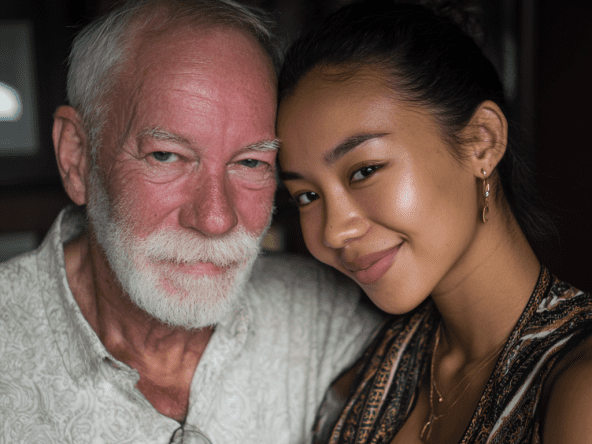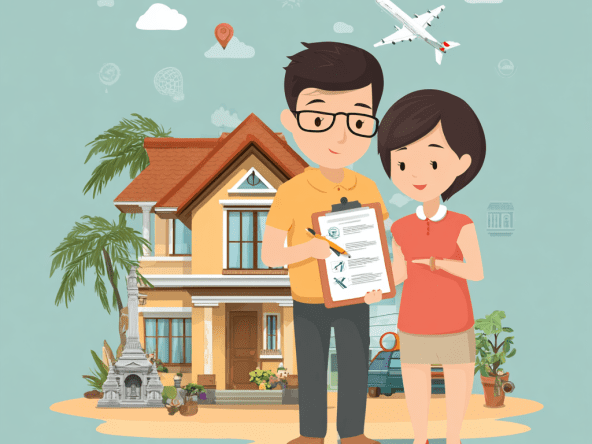Can Foreigners Own Condos in Thailand?
Yes, foreigners can legally own a condo unit in Thailand under the Condominium Act (Section 19) if they meet at least one of the following conditions:
- You have legal residence in Thailand
- You’re allowed to stay under Thailand’s investment promotion laws
- You own a company registered under Thai law
- Your company has received investment promotion from the Thai government
- You bring foreign currency into Thailand to buy the condo
Important Rule: Foreign ownership is limited to 49% of the total floor area of all condo units in a building. The rest must be Thai-owned.
Leasehold vs. Freehold Ownership in Thailand
When buying property in Thailand, it’s important to understand the difference between leasehold and freehold. Here’s a quick comparison:
| Feature | Leasehold | Freehold |
|---|---|---|
| Ownership Duration | 30 years (can be renewed) | Permanent |
| Land Ownership | No (land owned by landlord) | Yes (if Thai or through structure) |
| Can Foreigners Buy? | Yes | With restrictions |
| Inheritance | Complicated | Yes |
| Investment Potential | Moderate | High |
Leasehold Property Ownership
- Legal Framework: Governed by Thai Land Code Act
- Usage Rights: You have the right to use and occupy the property during the lease term, but the land remains under the landlord’s name.
- Renewal: Some leases can be renewed, but it’s not automatic—always check the contract.
- Transferability: Can be sold, but often requires landlord’s permission.
- Popular Among: Foreigners looking for a secure long-term stay without owning land.
Freehold Property Ownership
- Legal Framework: Offers full ownership of both land and buildings (Chanote title)
- Usage Rights: Full control—you can sell, lease, renovate, or pass it on to heirs.
- Foreign Ownership Limits: Foreigners can’t own land directly, but may set up a Thai majority company or invest via BOI promotion (legal advice required).
- Inheritance: Easy to pass on to family through a will.
- Best For: Long-term residents and investors who want full control.
Steps to Buy a Condo in Thailand
Step 1: Start Your Property Search
- Choose the location: Bangkok, Pattaya, Chiang Mai, etc.
- Define your purpose: Vacation home, retirement, or investment?
- Compare price, size, and developer reputation
- Work only with licensed real estate agents and reputable law firms
Step 2: Hire a Thai Property Lawyer
A property lawyer will help you:
- Conduct a title deed search to verify ownership
- Draft or review the Sale and Purchase Agreement (SPA)
- Advise on taxes and transfer fees
Note: If you’re buying a condo off-plan (before it’s built), ensure the developer is financially stable and licensed.
Step 3: Transfer Money from Abroad
You must transfer the money from overseas:
- Must be in foreign currency
- Specify purchase of condominium in the transaction purpose
- Ask your Thai bank to issue a Foreign Exchange Transaction Form (FETF)
Can Foreigners Get Mortgages in Thailand?
Yes, but only through select banks:
- Bangkok Bank (Singapore branch)
- United Overseas Bank (UOB)
Loans are in foreign currencies (USD, EUR, JPY) and require overseas assets and proof of income.
Final Step: Ownership Transfer at the Land Office
Transfer happens at the Land Office where the condo is located. You can go yourself or give Power of Attorney to your lawyer.
Fees at Transfer:
| Fee Type | Rate | Usually Paid By |
| Transfer Fee | 2% | Buyer |
| Stamp Duty | 0.5% | Seller (or Buyer) |
| Specific Business Tax | 3.3% | Seller (if sold < 5 yrs) |
| Income Tax | Varies | Seller |
Make sure these responsibilities are clearly written in the SPA.
Leasehold or Freehold – Which is Right for You?
| Criteria | Leasehold | Freehold |
| Duration | 30 years (renewable) | Indefinite |
| Control | Limited | Full |
| Suitable For | Short to mid-term stay | Long-term investment |
| Resale | Some restrictions | Easier, more profitable |
| Inheritance | Complicated | Simple |
| Best For | Holiday/vacation home | Full-time residence, investors |
Final Thoughts
Buying a condo in Thailand is one of the most viable and legal ways for foreigners to invest in property.
- Understand the 49% foreign ownership limit
- Use trusted legal and real estate professionals
- Ensure all funds are transferred from overseas properly
- Decide if leasehold or freehold fits your lifestyle and goals
Taking these steps will ensure you make a safe and smart property investment in Thailand.
Contact Us
If you need help or advice, reach out to us:
📧 Email: contact@centralcityproperty.com
📱 WhatsApp: +66959920345




